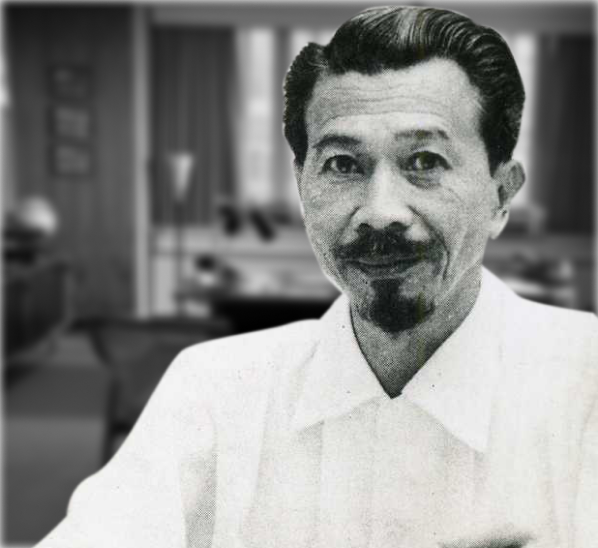In their respective countries, HARLEY KOESNA POERADIREDJA and PALAYIL PATHAZAPURAYIL NARAYANAN have guided labor organizations which have contributed significantly to community living.
In May, 13 years ago, Mr. KOESNA accepted the challenge of leading Indonesian railway workers who came to seek his help in developing a free trade union that would deal with vocational problems. Their concern was alliances between labor and political parties forged during the struggle for independence which were thwarting emergence of unions as instruments of effective economic action.
In building the Persatuan Buruh Kerata Api (PBKA), or Railways Workers’ Union of Indonesia, KOESNA adapted to Indonesian needs some methods used successfully by genuine trade unions elsewhere. The progressive and well-administered PBKA is solidly founded on monthly membership dues. Members now benefit from such joint enterprises as an accident insurance program, a savings and loan bank, a housing loan fund and a hospital.
Most notable have been the Union’s efforts to protect members in a prolonged period of more rapid increase in prices than wages. Through operation of rice mills, a clothing and shoe factory and a soap plant, prime need commodities are provided at low cost and workers? incomes augmented by employing other family members.
Strict management of union funds permitted savings that financed construction of a modern four-story headquarters in Bandung and the purchase of a printing press for union publications. Insistent, well-substantiated representations on behalf of members to the Government-run Railway Administration have resulted in such improvements as safeguards to minimize unemployment, a pension fund which protects widows and orphans as well as retired railway personnel, and a Moslem New Year bonus.
Convinced that society should see to the welfare of the common man, KOESNA nevertheless insists that people must work to better themselves. Through the years he had remained humble but resolute; giving the workers what they want, not only what he thinks is best for them, he insists the PBKA must have no political domination.
Similar goals were being sought in Malaya by P. P. NARAYANAN, an immigrant from South India at the age of 14. Inspired by Malaya as a land of opportunity, hard labor in a tin mine and on a rubber plantation as an impressionable 19-year-old nurtured in him an intense desire to help workers share in the promising future.
Starting with a group of 10 men at Seremban in 1946, he formed the nucleus that ultimately became the National Union of Plantation Workers (NUPW) of Malaya. With a strength of 180,000 dues paying members, it is today one of the largest, richest, and best organized in Southeast Asia.
P. P. NARAYANAN began his undertaking in a period of insurgency when both managers and many estate workers held the common belief that trade unionists were professional troublemakers and union membership meant sympathizing with the terrorists. He had not only to win with the employers the case for labor’s legitimate aspirations but also prove to labor the benefits of organization.
Plantation workers measure the consequences of this effort today in a wage scale that is four times higher than before they were organized. Medical care for workers and their families, improved housing to meet new government standards, education for children and a respect for labor as an essential part of the community have become common features on Malayan plantations. The Union does not exist only to get more from management but concerns itself with education of workers on their responsibilities as trade unionists and citizens.
The NUPW today is esteemed both by men who sit across the bargaining table and abroad for its forthright conduct of workers’ interests. “Negotiate first” is the rule, and compromise is usually reached without stoppage of work. The Union discourages communal discrimination and maintains political affiliation is an individual matter for each member. It publishes the only labor paper in Malaya, in Tamil, Chinese and Malay editions. With strength in depth through second and third level officers trained in union management, NUPW leaders have traveled to share their experience with similar groups in other developing countries.
In electing HARLEY KOESNA POERADIREDJA and PALAYIL PATHAZAPURAYIL NARAYANAN as the 1962 Ramon Magsaysay Awardees for Community Leadership, the Board of Trustees recognizes their championship of the workers’ cause through vigorous advancement of responsible and free trade unionism.
The Award is a complete surprise to me because my feeling is that my contribution to my community is too humble in comparison to the huge and difficult problems which my country has to solve. For this reason, it seems to me that the Award given to me is too early. Another reason is that I am not yet ready with my plans for labor and I may never be ready with them. But the most important thing for me today is the fact that the Ramon Magsaysay Award Foundation imposes a moral obligation to do more than what I have so far achieved. This means that Ramon Magsaysay, the late President, is applying moral pressure for me to do better than in the past for the poor.
I would also like to take this opportunity to give my formal contribution to a better understanding between the people of the Philippines and Indonesia. This humble contribution will be to give a small amount of money to the Philippine-Indonesia Association, if they will honor me with their acceptance. Secondly, to sponsor two Filipinos, one of whom shall be a top-rank railway union leader, to enable them to visit Indonesia and to be the guests of the Indonesian Railway Workers Union (PBKA) for which all the expenditures shall be paid by our organization. This will be carried out through the Indonesian Embassy in Manila in cooperation with one or more institutions here. This is only the first step to promote better relationship between the people of the Philippines and the people of Indonesia, and I do sincerely hope that in the near future the governments of both countries will try to achieve the objective which I have initiated.

